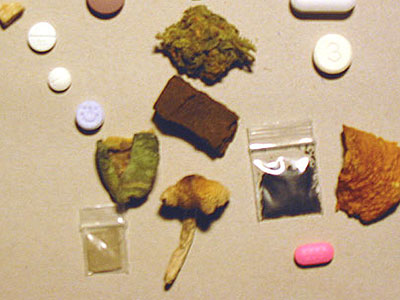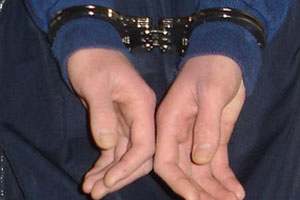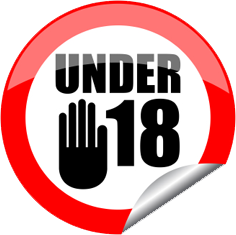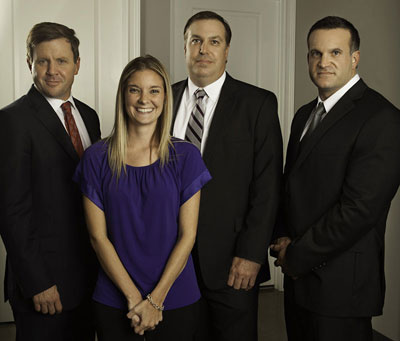Drug Sale Defense Lawyers:
Our Drug Sale Defense Lawyers have more than 50 years of combined legal experience handling many different types of drug violations and cases involving drug possession, drug sale and manufacture of controlled substances. We provide you with a team of experienced criminal defense lawyers to aggressively represent and provide you with the best possible defense.
Far more serious than the possession of controlled substances, sale of a controlled substance of any kind in Florida is a very serious offense – typically a second degree felony that is punishable by up to 15 years in prison.
And depending on the quantity of the controlled substance involved in the sale, you cold be looking at even more serious charges of drug trafficking. Trafficking is a first degree felony in Florida and is punishable by a mandatory minimum 3 year sentence or up to 30 years of incarceration.
Our team of controlled substance and drug sale defense lawyers features former prosecutors who have over 20 years of experience in handling these cases from the prosecution side – and we begin right away, getting to them long before the case ever goes to trial.
You have rights which protect from illegal search and seizure, and we will examine all evidence and determine whether or not any of it was obtained in violation of your Constitutional rights – rendering that evidence inadmissible in court.
Additionally, we can examine whether or not entrapment comes into play and can be used in your defense. For example, entrapment occurs if you had no prior intention on committing an offense, but were persuaded to commit the offense by a law enforcement officer.
We find that many of our clients who have been charged with the sale of controlled substance in Florida do not realize that a confidential informant can be considered law enforcement as part of your defense and it is crucial that you have strong representation in order to attack the credibility of any informants.
Fernandez Law Group:
If you are looking for an attorney that always makes time for you and to help guide you through the legal system, Jeff Quisenberry at the Fernandez Law Group is the attorney for you! Jeff always made time to answer and questions or concerns I had about the legal process. He is very knowledgeable and really cares about his clients. Jeff even made himself available to my partner and family when they had questions that I couldn’t answer. Jeff is a very nice guy and non judgmental, I recommend him highly if you want an attorney to help guide you through the legal process and someone that makes time for his clients.
Rated 5 out of 5 by S.P. on
on March 4, 2017 | Link to Review
And according to Chapter 934 of the Florida Statutes, along with the Constitution, law enforcement must follow strict legal procedures when attempting to obtain information from wiretaps and oral or electronic communication interception devices. Therefore, our drug sale defense lawyers also examine these details to determine whether or not those rights were violated.
Our Drug Sale Defense Lawyers are ready to provide you with a detailed consultation for FREE!
Sale of a Controlled Substance in Florida:

The Scheduling of Controlled Substances in Florida is broken into 5 categories:
- Schedule I – These drugs have a high potential for abuse and no accepted medical use.Schedule I drugs include: Heroin, cannabis, dimethyltryptamine, ibogaine, mescaline, peyote, psilocybin, salvia divinorum, tetrahydrocannabinols.
- Schedule II – These drugs also have a high potential for abuse but they also have a limited accepted medical use with severe restrictions. Abuse of Schedule II drugs can lead to severe psychic and physical dependency.Schedule II drugs include: Opium, morphine, codeine, hydrocodone, ocycodone, fentanyl, methadone, amphetamine, methamphetamine, pentobarbital.
- Schedule III – These drugs have less abuse potential than Schedule II or Schedule I drugs and also have an accepted medical use. Abuse of Schedule III drugs may lead to low or moderate physical dependence as well as a high psychological dependence.Schedule III drugs include: Anabolic steroids including stanozolol, testosterone, trenbolone and others. Additional schedule III drugs include benzphetamine, lysergic acid, nalorphine, and ketamine.
- Schedule IV – These drugs have less potential for abuse than Schedule III drugs and also have an accepted medical use. The abuse of Schedule IV drugs may lead to light physical or psychological dependence.Schedule IV drugs include: Alprazolam, barbital, clonazepam, diazepam, lorazepam, phenobarbital, and quazepam.
- Schedule V – These drugs have the least potential for abuse and also have a current and accepted medical use. There is limited risk of physical or psychological dependency.Schedule V drugs include: Any medicine that contains small amounts of specified narcotic drugs:
1. Not more than 200 milligrams of codeine per 100 milliliters or per 100 grams.
2. Not more than 100 milligrams of dihydrocodeine per 100 milliliters or per 100 grams.
3. Not more than 100 milligrams of ethylmorphine per 100 milliliters or per 100 grams.
4. Not more than 2.5 milligrams of diphenoxylate and not less than 25 micrograms of atropine sulfate per dosage unit.
5. Not more than 100 milligrams of opium per 100 milliliters or per 100 grams.
(b) Narcotic drugs. Unless specifically excepted or unless listed in another schedule, any material, compound, mixture, or preparation containing any of the following narcotic drugs and their salts: Buprenorphine.
(c) Stimulants. Unless specifically excepted or unless listed in another schedule, any material, compound, mixture, or preparation which contains any quantity of the following substances having a stimulant effect on the central nervous system, including its salts, isomers, and salts of isomers: Pyrovalerone.
Penalties for the Sale of a Controlled Substance in Florida:

A felony is going to result in greater fines and longer sentencing than a misdemeanor.
You may want to review the charges to see which drugs, and what quantity you are charged with and consult the above schedules and the information below to try and understand what consequences you may be facing. Florida divides felonies into the following three degrees:
First Degree Felony Sale of a Controlled Substance:
First degree felony sale occurs if a defendant delivers more than 10 grams or more of any Schedule I drug excluding Hallucinogens, 1,4-Butanediol, gamma-butyrolactone (GBL), gamma-hydroxybutyric acid (GHB), methaqualone and mecloqualone.
First degree felony sale is punishable with a fine of up to $10,000 and incarceration of up to 30 years.
Second Degree Felony Sale of a Controlled Substance:
A second degree felony punishable by a period of incarceration for up to fifteen (15) years and up to $10,000 in fines (or both) will be imposed for any defendant charged with the sale, delivery, or possession with intent to sell or deliver any of the following:
- Schedule I substance other than hallucinogens, or any:
- Schedule II controlled substance other than amobarbital, amphetamine, glutethimide, methylphenidate, pentobarbital, phenmetrazine, phenylacetone, or secobarbital.
Third Degree Felony Sale of a Controlled Substance:
A third degree felony punishable by a period of incarceration for up to five (5) years and up to $5,000 in fines (or both) will be imposed for any defendant charged with the sale, delivery, or possession with intent to sell or deliver any of the following:
- Schedule I hallucinogens
- Schedule II amobarbital, amphetamine, glutethimide, methylphenidate, pentobarbital, phenmetrazine, penylacetone, or secobarbital
- All Schedule III controlled substances
- All Schedule IV controlled substances
* See Florida Criminal Code Sections 893.13, 775.082, and 775.083 for more information.
Misdemeanor Sale of a Controlled Substance:
The sale of any Schedule V controlled substances is a misdemeanor of the first degree and is punishable by up to one year in jail, a fine of up to $1,000, or both.
* See Florida Criminal Code Sections 893.13, 775.082, and 775.083 for more information.
Enhanced Penalties

The following property types fall under the enhanced penalties rule:
- State, county, or municipal parks or facilities
- Religious organizations
- Places of worship
- Secondary schools between 6:00 am and midnight
- Post-secondary facilities
- Daycare facilities
- Public housing facilities
- Assisted living facilities
The sale of any Schedule I controlled substance other than hallucinogens, or any Schedule II controlled substance other than amobarbital, amphetamine, glutethimide, methylphenidate, pentobarbital, phenmetrazine, phenylacetone, or secobarbital becomes a first degree felony if the sale occurs within 1,000 feet of the above listed property types. Minimum sentencing is usually 3 years, unless it occurs near a daycare facility.
A second degree felony sale of a controlled substance will be imposed if the sale of any of the following occurs within 1,000 feet of the above listed properties:
- Schedule I hallucinogens
- Schedule II amobarbital, amphetamine, glutethimide, methylphenidate, pentobarbital, phenmetrazine, penylacetone, or secobarbital
- All Schedule III controlled substances
- All Schedule IV controlled substances
Misdemeanor sale of a controlled substance can be charged if the sale occurs within 1,000 feet of the above named properties, and if it involves a substance other than the controlled substances listed above.
Misdemeanor sale of a controlled substance is punishable by a fine of $500 and 100 hours of public service. This penalty is in addition to the sentence for the underlying crime.
This penalty does not apply when the owner of the daycare facility fails to post a sign at least two square feet in size that identifies the property as a licensed daycare center.
* See Florida Criminal Code Sections 893.13 and 775.083 for more information.
Involving a minor in the sale of a controlled substance:

A first degree felony punishible by a period of incarceration for up to thirty (30) years and up to $10,000 in fines (or both) will be imposed for any defendant charged with using a minor for the sale, delivery, or possession with intent to sell or deliver any of the following:
- Schedule I substance other than hallucinogens, or any:
- Schedule II controlled substance other than amobarbital, amphetamine, glutethimide, methylphenidate, pentobarbital, phenmetrazine, phenylacetone, or secobarbital.
This sentence cannot be suspended or deferred, nor can the convicted person be placed on probation.
A second degree felony punishible by a period of incarceration for up to fifteen (15) years and up to $10,000 in fines (or both) will be imposed for any defendant charged with the sale, delivery, or possession with intent to sell or deliver any of the following:
- Schedule I hallucinogens
- Schedule II amobarbital, amphetamine, glutethimide, methylphenidate, pentobarbital, phenmetrazine, penylacetone, or secobarbital
- All Schedule III controlled substances
- All Schedule IV controlled substances
This sentence cannot be suspended or deferred, nor can the convicted person be placed on probation.
Habitual Offenders
Florida imposes harsher penalties on defendants with multiple prior convictions, as is typical for most states.
A defendant with two or more prior felony convictions in Florida, or under any other law in the United States, faces an increased penalty for subsequent convictions.
- A conviction for a felony of the first-degree may be sentenced to a period of incarceration of up to life.
- A conviction for a felony of the second degree may be sentenced to a period of incarceration of up to 30 years.
- A conviction of a felony of a third degree may be sentenced to a period of incarceration of up to ten years.
Drug sale defense lawyers can help defendants review the statute to determine whether past convictions could result in an enhanced penalty.
* See Florida Criminal Code Section 775.084 for more information.
Misdemeanor felony offenders
A defendant with four of more prior misdemeanor convictions may be penalized in one of the following manners at the court’s discretion:
- a period of six months to one year of incarceration
- enrollment in a residential treatment program, or
- home detention for a period of six months to 364 days.
* See Florida Criminal Code Section 775.0837 for more information.
If you have been convicted of the sale of a controlled substance in Florida, you should contact experienced drug sale defense lawyers immediately. These charges come with serious penalties and the consequences can last for a lifetime.
Take advantage of our FREE consultation so you can begin understanding the severity of the charges you are facing. Learn what penalties may be applied, whether or not certain evidence is inadmissable, if entrapment occurred, and some defense strategies along with potential outcomes. You’ll be confident in your decision to call us once you speak with us.



 Rated 5 out of 5 by
Rated 5 out of 5 by 